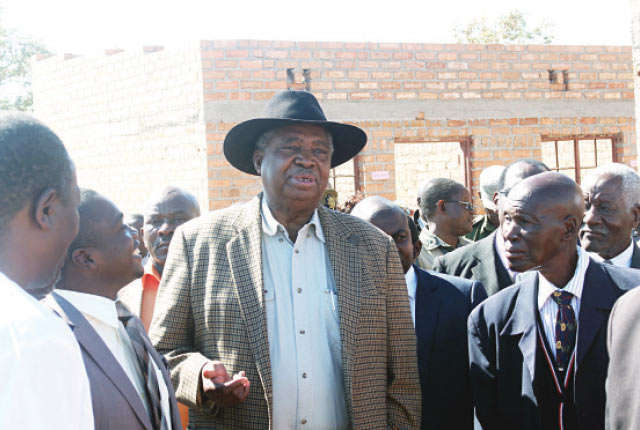EDITORIAL COMMENT: Power hike rejection a welcome move

 THE decision by the Zimbabwe Energy Regulatory Authority (Zera) to reject a proposal by the Zimbabwe Electricity Transmission and Distribution Company (ZETDC) to increase the power tariff by 49 percent is progressive.
THE decision by the Zimbabwe Energy Regulatory Authority (Zera) to reject a proposal by the Zimbabwe Electricity Transmission and Distribution Company (ZETDC) to increase the power tariff by 49 percent is progressive.
Given the high cost of production in a dollarised economy, a majority of companies cannot bear a further tariff increase without the risk of worse challenges, even collapse.
Energy charges are part of a package of cost drivers that include water, labour, finance, taxation, transportation and trade, information technology among other tariffs and trade levies.
The relatively high cost on these compared to regional levels, remains a major hurdle to vibrant economic progress in Zimbabwe and continue to dent the country’s doing business image.
Zesa Holdings has a virtual monopoly in power generation and supply in the country through its subsidiaries – The Zimbabwe Power Company (ZPC) and the ZETDC.
ZPC operates and manages five power stations – Hwange Thermal Power Station, Kariba Hydro-Power Station and three small thermal power stations in Bulawayo, Harare and Munyati.
It is ironic that ZETDC had applied for a 49 percent upward review of the electricity tariff from the current level of USc9.86/kwh to USc14.69/kwh when study findings have shown that the country was the least competitive in terms of energy costs in the region.
It is heartening that Zera, in its rejection of the power tariff increase proposal, considered concerns and views of different stakeholders.
The negative performance of the economy in 2015 to date, the on-going efforts by the Government to improve the ease of doing business, the urgent need to reduce the cost of doing business and improved efficiency speak against any tariff increase at this point in time.
The 2014 Cost Driver Analysis report of the Zimbabwean economy buttresses the rejection of the Zesa application.
According to the study, Zimbabwe is the least competitive in the region at 12,72 US cents per kilowatt hour for all categories of consumption in the commercial sector followed by South Africa for the consumption level of 450 kilowatt hours.
The country is again the least competitive under the industrial level of demand at average 9,83 US cents. This is followed by Mozambique at 4, 7 US cents and 5,1 US cents for 10KVA and 100KVA respectively.
“The gap in power rates in Zimbabwe with its neighbours is in fact worse than given above,” reads part of the study, which was conducted by the Zimbabwe Economic Policy Analysis and Research Unit (Zeparu).
Zimbabwe is suffering from a power shortfall, being able to generate average 1 000MW against demand of up to 2 000MW. To avert incessant power cuts the country has resorted to importing electricity from regional producers.
The study indicates that mining and industrial users who are on a dedicated supply line “are charged an effective tariff of 14,5 US cents per kilowatt/hour to avoid being subjected to load shedding”.
The average of other countries at the lowest level of commercial consumption is 8,3 US cents per kwh, which is 57 percent of what Zimbabwean businesses pay for electricity.
The scenario with Zesa points to a broader need for a collective review of the cost structure in the country for the benefit of the economy.
Such a course should be hastened given the outcry over low efficiency in major service provision. To this end, experts have stressed the need to streamline operations and improve efficiencies to bring down costs before calling for a tariff increase.
Energy and Power Development Ministry officials are on record saying close to 20 percent of the electricity generated is lost during transmission and distribution because of poor infrastructure.
This loophole should be addressed by Zesa and not be extended to the consumer.
The power utility is also owed up to $1 billion, with Government departments accounting for the larger part of the debt. The agriculture sector is said to have accumulated debts to the tune of $120 million.
These facts build a case against any tariff increases in Zimbabwe but call for an urgent regulatory reform that will make our country attractive to both local and foreign investors.
Local authorities, the Zimbabwe National Water Authority and other regulatory agencies should also take a cue from Zesa and proactively review their cost structures to the broader benefit of the national economy.












Comments